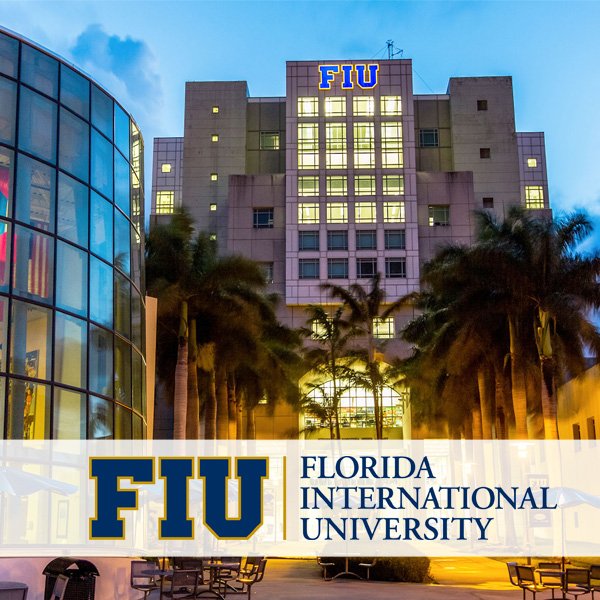Studying abroad is a dream shared by many Nigerian students. It represents more than just earning a degree—it’s a pathway to global exposure, professional growth, and opportunities that can transform not just one individual but entire communities back home.
However, let’s face the truth: the financial barrier is massive.
- Tuition fees in the United States can reach $30,000–$60,000 yearly.
- The UK averages £15,000–£25,000 per year.
- Even in more affordable destinations like Germany, students still need to cover living expenses that can hit €10,000 annually.
For families earning in naira, with the dollar exchange rate skyrocketing, this cost is often out of reach.
But here’s the good news: fully funded scholarships erase that barrier.
What makes them special?
- No tuition fees – everything is paid.
- Living stipends – you don’t need to work multiple jobs to survive.
- Travel support – round-trip airfare is usually included.
- Health insurance – covering medical expenses abroad.
- Research & book grants – for postgraduate students.
For Nigerian students battling inflation, unemployment, and currency depreciation, these scholarships are not just an opportunity—they are a lifeline and a ladder to global competitiveness.
Fully Funded Scholarship Requirements Every Nigerian Student Must Know
Many Nigerian students mistakenly assume that only “geniuses” or “First Class graduates” win scholarships. While academic excellence is important, it is not the only deciding factor.
Here’s what most fully funded scholarships require:
1. Academic Excellence
- GPA of at least 3.0/4.0 (Second Class Upper or First Class in Nigerian universities).
- Some postgraduate programs may accept 2.2 if you have strong work experience.
2. English Language Proficiency
- For English-speaking countries (UK, USA, Australia, Canada): IELTS, TOEFL, or PTE.
- For Germany or France: Proof of German/French may be required if your course isn’t in English.
3. Strong Personal Statement
- Clearly outline your story, goals, and why the scholarship should invest in you.
- Connect your dreams to Nigeria’s development—scholarship boards love impact-driven candidates.
4. Leadership & Community Service
- Have you volunteered, organized a project, or mentored others?
- Scholarships like Chevening and Commonwealth prioritize future leaders.
5. Recommendation Letters
- At least two (academic and/or professional).
- Should be detailed, not generic.
6. Valid Passport & Identification
- Many students get stuck because their passports are expired. Renew yours early.
7. Work/Research Experience (for Postgraduate)
- Some require 2–3 years of relevant work (e.g., Chevening).
- For PhDs, research proposals and publications are crucial.
👉 Pro Tip: Requirements may differ slightly per scholarship, so always double-check the official website.
Types of Fully Funded Scholarships for Nigerian Students
Not all scholarships are the same. Understanding the categories helps you strategize.
- Government Scholarships
- Chevening (UK), Fulbright (USA), DAAD (Germany), MEXT (Japan).
- Sponsored by governments to strengthen ties with other countries.
- University Scholarships
- Rhodes Scholarship (Oxford), Gates Cambridge, Clarendon Fund.
- Directly tied to the institution.
- Private/NGO Scholarships
- Mastercard Foundation Scholars Program.
- African Leadership Academy scholarships.
- Bilateral/Regional Scholarships
- Commonwealth Shared Scholarships.
- Erasmus Mundus Joint Master’s (across multiple European universities).
- Research-Focused Grants
- DAAD research programs.
- Canada Vanier Graduate Scholarships.
Comparison of Top Fully Funded Scholarships
| Scholarship | Host Country | Level | Coverage | Deadline (Approx.) |
|---|---|---|---|---|
| Chevening Scholarship | UK | Master’s | Tuition, flights, living stipends | Nov (previous year) |
| Commonwealth Scholarship | UK | Master’s/PhD | Tuition, stipends, flights | Dec |
| Rhodes Scholarship | UK (Oxford) | Master’s/PhD | All fees, stipends, flights | July |
| Fulbright Foreign Student Program | USA | Master’s/PhD | Tuition, travel, living, health insurance | May–Oct |
| Hubert Humphrey Fellowship | USA | Professional | Tuition, travel, living | Oct |
| DAAD Scholarships | Germany | Master’s/PhD | Tuition, stipends, research allowance | Aug–Oct |
| Erasmus Mundus | Europe | Master’s | Tuition, stipends, travel | Dec–Jan |
| MEXT Scholarship | Japan | BSc–PhD | Tuition, stipends, flights, health insurance | April–May |
| Australia Awards | Australia | Master’s/PhD | Tuition, stipends, flights, living costs | April |
| Vanier Canada Graduate Scholarship | Canada | PhD | Tuition, stipends, research grant | Nov |
Step-by-Step Guide to Applying for Fully Funded Scholarships
- Identify the right scholarship (UK? USA? Germany?).
- Check eligibility carefully—don’t waste time on ones you don’t qualify for.
- Prepare documents (transcripts, IELTS, passport, recommendation letters).
- Write your personal statement early—revise multiple times.
- Apply before the deadline—last-minute applications often fail.
- Follow up with referees to ensure they submit on time.
- Prepare for interviews (if required). Practice common scholarship interview questions.
Common Mistakes Nigerian Students Make
- Applying without checking eligibility.
- Submitting incomplete applications.
- Weak essays with no personal voice.
- Depending on one scholarship only.
- Missing deadlines due to poor planning.
How to Write a Powerful Scholarship Personal Statement
A scholarship personal statement is not just an essay—it is your story, vision, and purpose packaged into 800–1,000 words. While transcripts, CVs, and certificates show what you’ve done, the personal statement shows who you are and why you matter.
Think of it this way: If you had 5 minutes to convince a panel of strangers to invest thousands of dollars in your education, what would you say? That is exactly what your personal statement should achieve.
1. Understand the Purpose of the Personal Statement
Every scholarship has a mission. Some focus on leadership (Chevening), some on research (DAAD), some on development (Commonwealth), and others on academic brilliance (Rhodes).
Your personal statement must:
- Reflect your academic excellence.
- Highlight your leadership and community service.
- Show your career vision.
- Connect your dreams to Nigeria’s development (or your home country’s progress).
2. Structure of a Winning Personal Statement
A powerful personal statement should be structured like a mini-essay with flow and personality.
a. Introduction – The Hook (100–150 words)
- Start with a powerful story, personal experience, or defining moment.
- Avoid clichés like “I have always loved education.” Instead, share something that grabs attention.
Example:
“Growing up in Kaduna, I saw how lack of healthcare access forced families to rely on untrained practitioners. This early reality shaped my dream to pursue public health and contribute to Nigeria’s healthcare reforms.”
b. Academic Journey and Achievements (200–300 words)
- Outline your education, grades, and academic projects.
- Show consistency, resilience, or moments of growth.
- Highlight research projects, awards, or special distinctions.
c. Leadership and Extracurriculars (200–300 words)
- Talk about community service, volunteering, or student leadership.
- Show impact: How many people benefited? What changed?
- Scholarship boards love measurable achievements.
d. Career Goals and Future Plans (200–300 words)
- State your short-term and long-term career goals.
- Show how studying abroad will prepare you for them.
- Link your goals to Nigeria’s development (e.g., entrepreneurship, climate action, education reform, healthcare, digital economy).
e. Why This Scholarship and Host Country (150–200 words)
- Explain why you chose the program/university.
- Show alignment with the scholarship’s mission.
- Don’t just say “I want to study in the UK/USA”—be specific about resources, faculty, or global exposure.
f. Conclusion – Call Back to the Hook (100 words)
- End with passion and purpose.
- Tie back to your opening story for a memorable close.
3. Writing Tips That Make a Personal Statement Stand Out
- Be authentic – Committees can sense exaggeration. Use real stories.
- Use active voice – Say “I led a project” not “A project was led by me.”
- Be specific – Numbers and outcomes make you credible.
- Instead of: “I volunteered at a community project.”
- Say: “I organized a youth education program that reached 150 students in rural Enugu.”
- Show growth – If you struggled (financially, academically, or personally), explain how you overcame it.
- Link to impact – Always tie your journey back to how it will help your community.
4. Common Mistakes Nigerian Students Make in Personal Statements
- Generic Essays: Writing the same statement for all scholarships. Each application must be tailored.
- Listing CV in Prose: Your CV already lists achievements—your essay should tell the story behind them.
- Ignoring Development Impact: Many Nigerian students focus only on personal success, forgetting to explain how they’ll give back.
- Weak Conclusions: Ending with “I hope to be considered” instead of a powerful vision statement.
5. Example of a Strong Personal Statement Excerpt
“As the first in my family to complete secondary school, I understand the transformative power of education. While studying microbiology at the University of Lagos, I volunteered in community health projects that provided free malaria treatment to over 500 children. This experience revealed how grassroots interventions can save lives. With a Master’s in Public Health through the Commonwealth Scholarship, I aim to design scalable healthcare solutions that reduce preventable diseases in Nigeria’s rural communities.”
Notice how this is:
- Personal.
- Impactful (numbers included).
- Linked to Nigeria’s development.
- Scholarship-focused.
A scholarship personal statement is not about being the smartest—it’s about being the most compelling. When selection committees read your essay, they should feel your passion, believe in your vision, and see the impact you’ll create in Nigeria and beyond.
Write it with honesty, polish it with care, and deliver it with confidence. That single document could be the bridge between your dreams and your future.
Resources to Track Scholarships
- Chevening Official Website
- ScholarshipPortal
- EducationUSA for U.S. programs.
- University websites (Oxford, Harvard, Toronto, Melbourne).
FAQs: Fully Funded Scholarships for Nigerian Students
1. Can I apply for multiple scholarships at once?
Yes! In fact, it’s recommended to increase your chances.
2. Do I need work experience?
For some scholarships (like Chevening), yes. For others (like MEXT), no.
3. Can a 2.2 graduate apply?
Yes, but options are fewer. Pair it with strong work or research experience.
4. Do I need IELTS?
Most English-speaking scholarships require it, unless your undergraduate degree was fully in English.
5. How competitive are these scholarships?
Extremely. For example, Chevening receives over 60,000 applications yearly for about 1,500 awards.
Final Thoughts: Your Future Starts with One Application
Fully funded scholarships are not just about money—they’re about unlocking opportunities that can reshape your future.
Nigerian students face unique challenges: currency devaluation, economic hardship, and limited opportunities at home. But with determination, planning, and persistence, you can join the ranks of Nigerian scholars excelling abroad.
Remember: the difference between success and failure is often preparation. Start early, tell your story authentically, and don’t give up after the first rejection.
Your scholarship is out there—waiting for you to apply.



